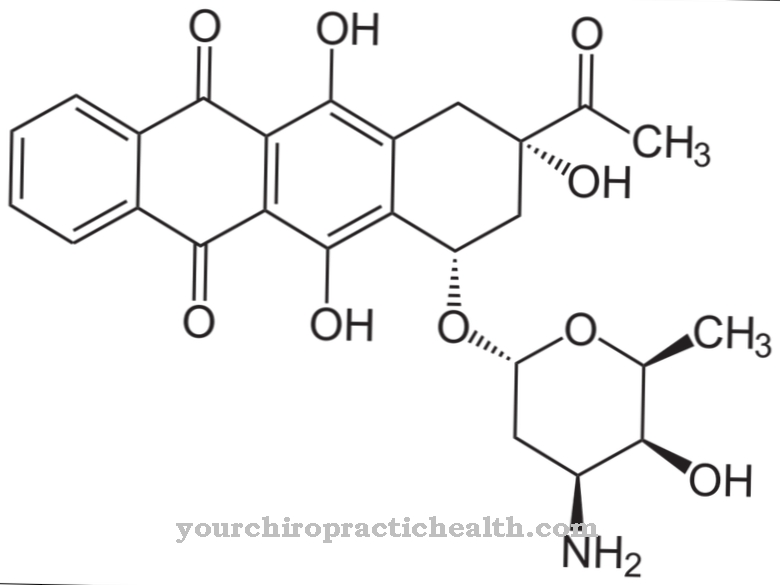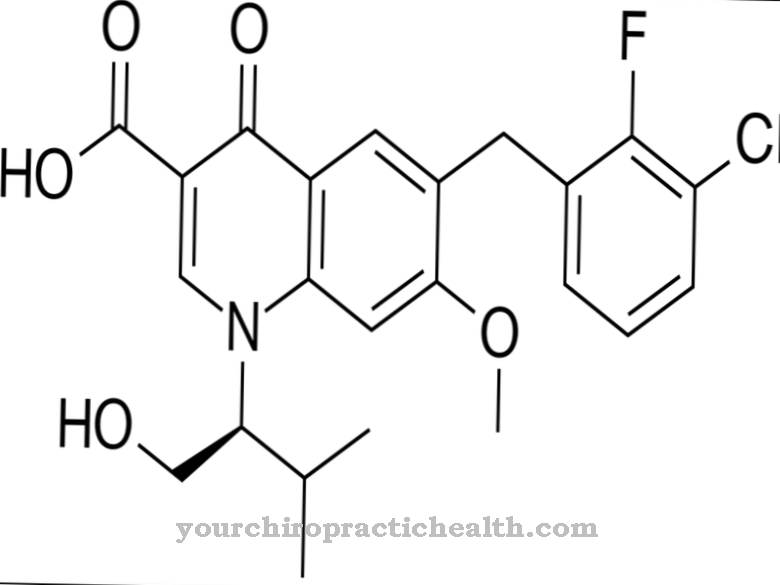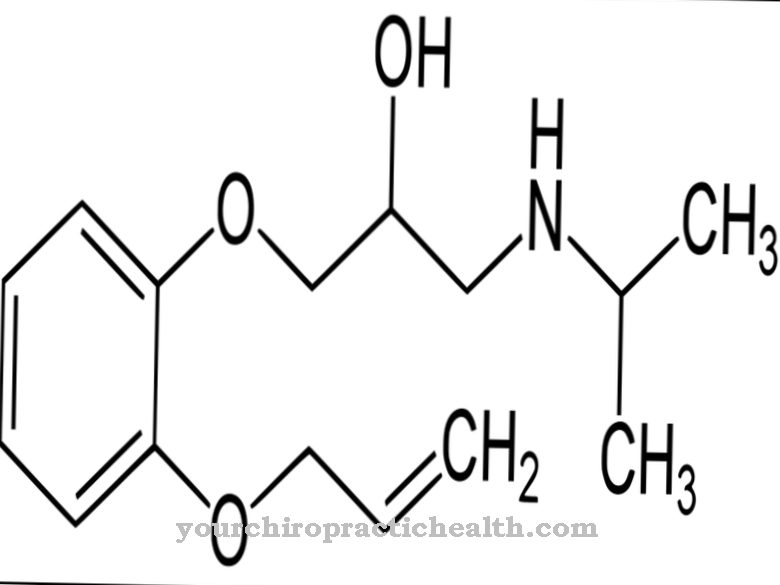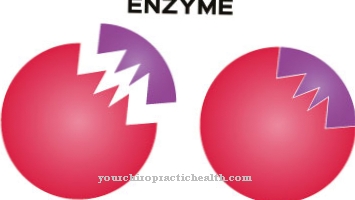With the active ingredient Mebendazole it is a drug from the benzimidazole category. The drug was developed and brought to market by the pharmaceutical manufacturer Janssen Pharmaceutica. The substance mebendazole is used in the majority of cases in the treatment of worm diseases. Because the drug mebendazole is a so-called broad spectrum anthelmintic, which is suitable for the treatment of ancylostomatidosis, for example.
What is mebendazole?
In principle, the substance mebendazole is a drug with anti-parasitic properties. Mebendazole belongs to the category of antihelminthics and is usually used to treat an infestation of the intestine with worms.
The effect is due to the fact that the substance mebendazole binds to the substance tubulin and affects the division of worm cells. To combat pinworms, one tablet should be taken with a meal. Another tablet is given two weeks later.
Common side effects from the drug include diarrhea and other digestive disorders, abdominal pain and flatulence.
The active ingredient mebendazole is a derivative of benzimidazole, and it is also a carbamate. The substance comes in the form of a powder that is white in color. The substance is practically insoluble in water.
Pharmacological effect
The drug mebendazole works because it attaches to the microtubules inside the worms' intestines. As a result, the uptake of glucose is blocked and degeneration occurs. However, the cells of mammals are not affected by the substance mebendazole.
After oral administration of the drug, the active ingredient is usually only partially absorbed. In addition, the first-pass effect is relatively strong in the majority of cases, so that a considerable proportion of the drug is excreted again. For this reason, only a small part of the dose originally taken is available. Due to the strong first-pass effect, it works primarily in the intestines.
Basically, the drug mebendazole is characterized by strong antihelminthic effects. The effect of the drug is parasite-specific. It is a chemotherapeutic agent that affects the microtubules and thereby degenerates the intestinal cells of the worms.
Medical application & use
The drug Mebendazole is suitable for the drug treatment of infections of the intestines with worms. The drug is primarily effective against certain types of tapeworms and nematodes. It is also sometimes used to treat cystic and alveolar echinococcosis and trichinosis. High doses of the active ingredient are necessary here.
In addition, the drug mebendazole is used in veterinary medicine and is also used here to treat numerous worm diseases.
The dosage of the drug mebendazole is always based on the accompanying technical information. The type of treatment varies depending on the type of worm. In most cases, one tablet is given first and then taken again after two weeks. However, depending on the manufacturer, a therapy duration of three days may be prescribed.
Risks & side effects
Before taking the drug mebendazole for the first time, there are various potential side effects to be considered, which are weighed up by the attending physician after considering the individual case. In principle, undesirable side effects caused by the substance mebendazole do not occur in every patient and also differ in terms of their frequency. The side effects also vary in their severity and severity in different people.
Particularly common side effects that result from taking the drug mebendazole are, for example, dizziness, headaches and nausea. In some cases, digestive disorders also occur, which are manifested in various ways. Some patients suffer from vomiting or diarrhea. Pain in the region of the abdomen and gas are also possible.
During therapy with the active ingredient mebendazole, not only various side effects must be observed, but also some contraindications. These must be followed urgently, otherwise serious complications threaten. Initially, the drug mebendazole is contraindicated in the presence of hypersensitivity to the active ingredient. In addition, it is not advisable to take the drug during pregnancy. In addition, you should refrain from taking metronidazole and the drug mebendazole at the same time.
If the drug is used in veterinary medicine, it should also be noted that mebendazole has a teratogenic effect on rodents.
The drug mebendazole is not suitable for children who are younger than one year. In children under two years of age, use is only indicated with reservations, whereby strict medical supervision is necessary. All information regarding the contraindications are listed in the technical information for the respective preparation.
There are also some interactions between the drug and other substances. For example, the concentration of the active substance mebendazole in the blood plasma is reduced if the substances phenytoin or carbamazepine are taken at the same time. These are so-called enzyme inductors. Simultaneous intake of metronidazole and insulins should also be avoided.




























.jpg)